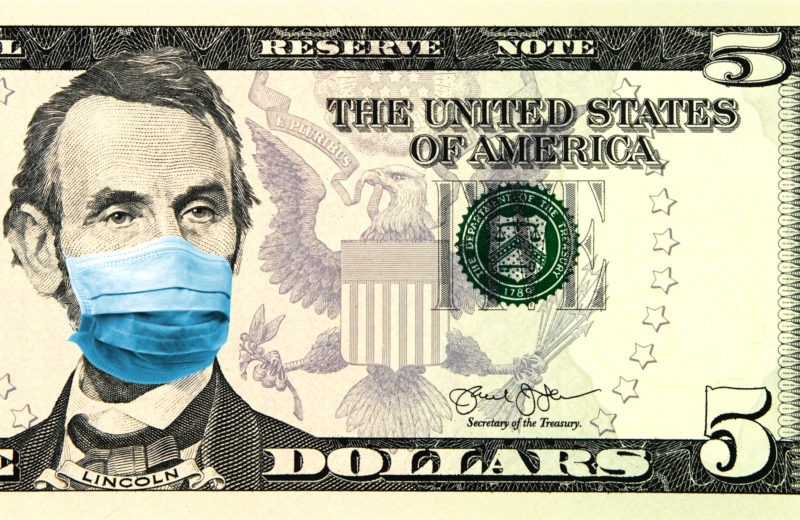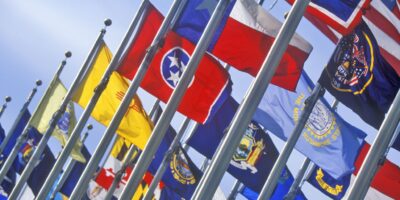Economic Policy Must Prepare for Pandemic Disease

The prospect of pandemic disease – certainly one with as many unknowns as COVID-19 – has a way of focusing one’s mind on what matters. Poetically, the turning point for Americans seemed to be Ash Wednesday 2020. That’s the day popular culture went from “this is not really a threat at all” to “this could get very serious very fast and change everything.”
Ashes to ashes indeed.
At the prospect of mass death by disease, all the strange obsessions that consume the political class – from the need to pillage billionaires to the burning desire to flatten trade deficits – tend to fade in priority.
When the leading medical reporter for the New York Times admits that he is stockpiling food and masks, you know that something is getting serious.
It was not even a month ago when AIER presented something most people do not know: the government right now claims to possess totalitarian powers in dealing with pandemic disease. People tweeted that we were being alarmist. Meanwhile, yesterday, on Ash Wednesday, the president refused to rule out using China-like tactics in dealing with COVID-19, including the quarantining of whole cities.
Whoa.
The economic impact of something like this could be devastating. Supply chains disrupted. Travel truncated and, in some regions, effectively stopped. Shipments of food and medicine sitting on docks. Workers holed up in apartments for months at a time. And this isn’t just about what government demands you do. It is what people are willing to do to limit their exposure. When it comes to life and death, people can become rather risk averse very quickly. They can panic in uncontrollable ways.
Companies are already starting to suspend international travel. Brick-and-mortar stores could get hit with fears of people unwilling to be out in public mixing it up with strangers. This could profoundly affect restaurants, entertainment, commercial conventions, sporting events, concerts, the entire tourism industry, among many other implications. The toy industry is already a disaster in the making.
We’re already seeing the effect on financial markets. What will this do to retail prices? We could be looking at some wild and unpredictable swings. Already, 60% of global productivity is dependent on international trade, and that’s just what we can see. What we do not see are the infinitely complex ways that productive structures depend on smoothly functioning markets that could all face deep disruption.
Efforts to examine the possible economic impact are few but a 2006 Congressional Budget Office study suggested that a 1918-style pandemic today could drop GDP by 4.25%, which would put the economy in painful recession territory.
The policy response so far has focused on local governments begging for more money to prepare. Reports the WSJ:
Meanwhile, New York Gov. Andrew Cuomo is seeking additional state preparedness funds. Connecticut officials said the state may face a shortfall of medical gloves and masks. California municipalities, including San Francisco and San Diego, have issued emergency declarations to prepare for a possible outbreak.
Here’s a better idea to consider: cut taxes, tariffs, and any other barriers to commerce and trade immediately and dramatically. This is not a good time for artificial barriers to persist. Tear them down immediately. This is not artificial stimulus. This is what we should do anyway, it’s just that the prospect of disease-inspired recession should focus the mind on good policy. This is a much better path than loose monetary policy or more fiscal stimulus, neither of which holds much promise of keeping goods and services in production and trading.
Additionally, prices for essentials (masks, at present) must be allowed to rise without being decried (or prosecuted) as “gouging,” in order to ensure that production is directed in areas where profits are highest, thereby rising to meet demand.
At present, the U.S. has imposed some $50 billion in tariffs on Chinese imports, while prompting $112 billion in retaliatory tariffs.
States are usually the last to see crises materialize, and all too often their responses exacerbate a crisis, create new crises, or both. The best that can be done in the face of virulent diseases, natural disasters, and other catastrophes is for governments to get out of the way; policywise, first and foremost.
Another thing we can do – also what we should be doing anyway – is promote the spread of liberty. The totalitarian government of China, where the coronavirus pandemic began, hid information and misled outside observers until it became impossible to.
To maintain the illusion of state omniscience, many more people both inside and outside of China will have died than otherwise, and immeasurable global economic damage inflicted as well. And it should be lost upon no one that the highly probably source of the coronavirus – eating what might best and most politely be referred to as exotic animals outside of normal human consumption – occurred in China, where over 150 million people are malnourished.
The prospect of quarantine or other forms of legal impositions can demotivate information flows at a time when they are most necessary. It can also promote a kind of paranoia: what is it that we do not know? There are also human-rights implications, obviously. There is nothing Constitutional about walling off a whole city and forcing everyone to be exposed. It also won’t do any good under genuinely pandemic conditions. It could even cause widespread panic.
The best approach to a shocking event like a global pandemic disease with a high death rate is to free the markets and eliminate barriers to trade as soon as possible. This would at least minimize the damage, get goods and services to those who need them, calm the panic, and reward traders and investors for maintaining normalcy and growth insofar as it is possible.
The situation with COVID-19 is already serious and could get worse quickly. We should also get serious about a viable policy response that protects health, liberty, property, peace, and prosperity in bad times.











